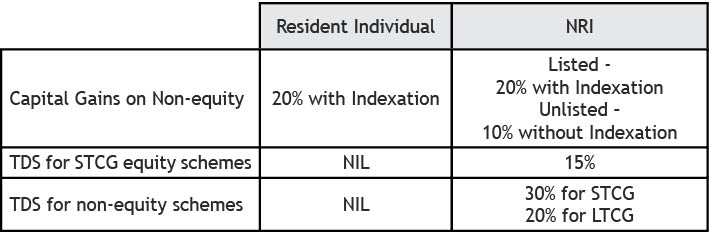Porus Khambatta, a master mariner by profession was sipping his cup of coffee reading through a finance page of a leading daily when suddenly a piece of news caught his attention, causing him worry. He immediately sought explanation on the amendment to the PPF Scheme, 1968, “If a resident, who opened a PPF account under this scheme, subsequently becomes a Non-Resident Indian (NRI) during the currency of the maturity period, the PPF account shall be deemed to be closed with effect from the day he becomes NRI”. NRIs are no longer allowed to invest in tax free schemes like PPF or NSC, MIS or other time deposits offered by the post office. The government has notified that PPF accounts would be closed the day the person acquires NRI tax status prematurely. Till now, NRIs were allowed to keep their PPF and NSC but they could not extend them after maturity. But with the new rule and amendment coming in, existing PPF accounts will be deemed closed and the balance in their PPF or NSC will earn just 4% till maturity. Both PPF and NSC currently earn 7.8% annual rate of return, while post office savings account rate is 4%. PPF and NSC rates are also higher than what banks offer in comparable products.
Over the years, tax rules for NRIs have undergone immense changes and are becoming increasingly difficult to fathom. We will discuss the issues in relation to the residential status of a non-resident, the recent developments in this context and the tax implications arising therefrom. They are quite different from those that apply to resident Individuals, for eg: TDS rates are high and they are deducted at source, a stumbling block for NRI’s. Resident individuals in MF’s are not subjected to TDS.
Tax rates for NRI’s and RI (Resident Individual) for FY 2017-18:

If the NRI earns rent from property in India the tenant is liable to deduct TDS @ 30%. Moreover, even if the income is not taxable, TDS will be deducted and he has to file the income tax return and claim the TDS from tax authorities. It becomes particularly painful for senior citizens who don’t fall under the tax bracket. NRIs are not allowed to file or submit form 15G or 15H which compounds the TDS problem. It’s not all that bad for NRIs, the biggest tax advantage is that they are exempted from tax on income received from abroad while working out of India. The interest earned on NRE account and NRE deposits continue to be tax free. It will be exempt for two years after the individual returns to India. After two years when the tax status changes the NRE deposits can be moved to a normal savings account.
There are ways in which one can avoid TDS, namely: Being a second joint holder in Mutual Funds, Stocks or Fixed Deposits. For all investments, the tax liability is always that of a 1st holder. If your wife or parents are resident Indian, the gain will not be subjected to any TDS. Mutual Funds can be bought with resident wife or parents as primary holders and the NRI can be a second joint holder.
If at all, both husband and wife have a NRI statuses, then the two can opt for investing in mutual funds. Arbitrage funds can be a good entry point for NRIs to start with. The risk is negligible and the returns are completely tax free if you opt for a ‘dividend reinvest option’. One can also opt for dividend payout if a regular cash outflow is the objective of investment. If the investment horizon is for three to five years, then opting for Equity Savings Fund is a better choice. Here the dividends are totally tax free, with no TDS on capital gains, after completion of one year.
- જેજે હોસ્પિટલના પારસી વોર્ડમાં નવરોઝની ઉજવણી - 5 April2025
- ઝોરોસ્ટ્રિયન વિમેન્સ એસોસિએશન ઓફ સુરત દ્વારા પાણી બચાવો પર્ફોર્મન્સ - 5 April2025
- આવાં યઝદના પરબની ઉજવણી - 5 April2025
